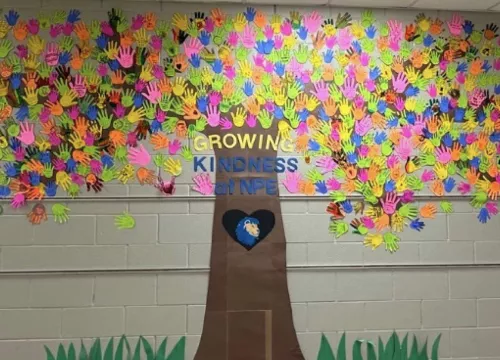Impact Story
Pee Dee Resiliency Project
Stronger Together for Resilient Communities
The Pee Dee Resiliency Project is an innovative approach to addressing Adverse Childhood Experiences (ACEs) and is the first project funded by the Foundation to be a truly collaborative approach between two organizations.
About the Organizations
The South Carolina Department of Mental Health supports the recovery of people with mental illness. Children’s Trust of South Carolina works to prevent child abuse, neglect, and injuries throughout South Carolina.
In 2015, both the South Carolina Department of Mental Health and Children’s Trust of South Carolina were each separately funded for projects addressing mental health and ACEs in the Pee Dee . Recognizing the overlapping themes within their projects and the critical importance of addressing ACEs, the Foundation brought both together to determine how the two separate projects could potentially integrate work in an effort to create a model that would be evaluated for replication into additional communities.
About the Grant
The Pee Dee Resiliency Project (PDRP) works to prevent the long-term impact of poverty, mental health, and ACEs by using schools as a point to engage students, families and communities to prevent and address root causes of mental health issues. The project operates in eight elementary schools and the surrounding communities in Darlington, Florence and Marion counties. School-based mental health clinicians provide support to students through a multi-tiered system of support, addressing prevention (tier 1), awareness (tier 2) and treatment (tier 3). Meanwhile, additional work continues in the community to build awareness of ACEs and connect families to resources.
Why it was Funded
The Foundation recognizes that ACEs are long-term and multi-generational issues and will require innovative strategies and commitment to projects that can address multiple settings, such as schools and the community itself. Through this project, a prevention framework will be developed, which may have the potential to be replicated in other communities around the state.
62% of South Carolinians report experiencing at least one ACE as a child and 16% report experiencing four or more.
Project Results
Approximately 4,000 students who previously did not have access now have a full-time, school-based mental health clinician.
Ongoing Support
While PDRP is an ongoing project, mental health clinicians in each school are actively working to determine the best mix of services to provide to students to sustainably fund their work.
Clinicians have been able to spend more time addressing prevention and awareness in the schools while sufficiently addressing the need for treatment, which is currently the only service that can be billed for. This shift in services addresses a greater percentage of the population and aims to address potential sources of ACEs before they become detrimental to students’ health.


